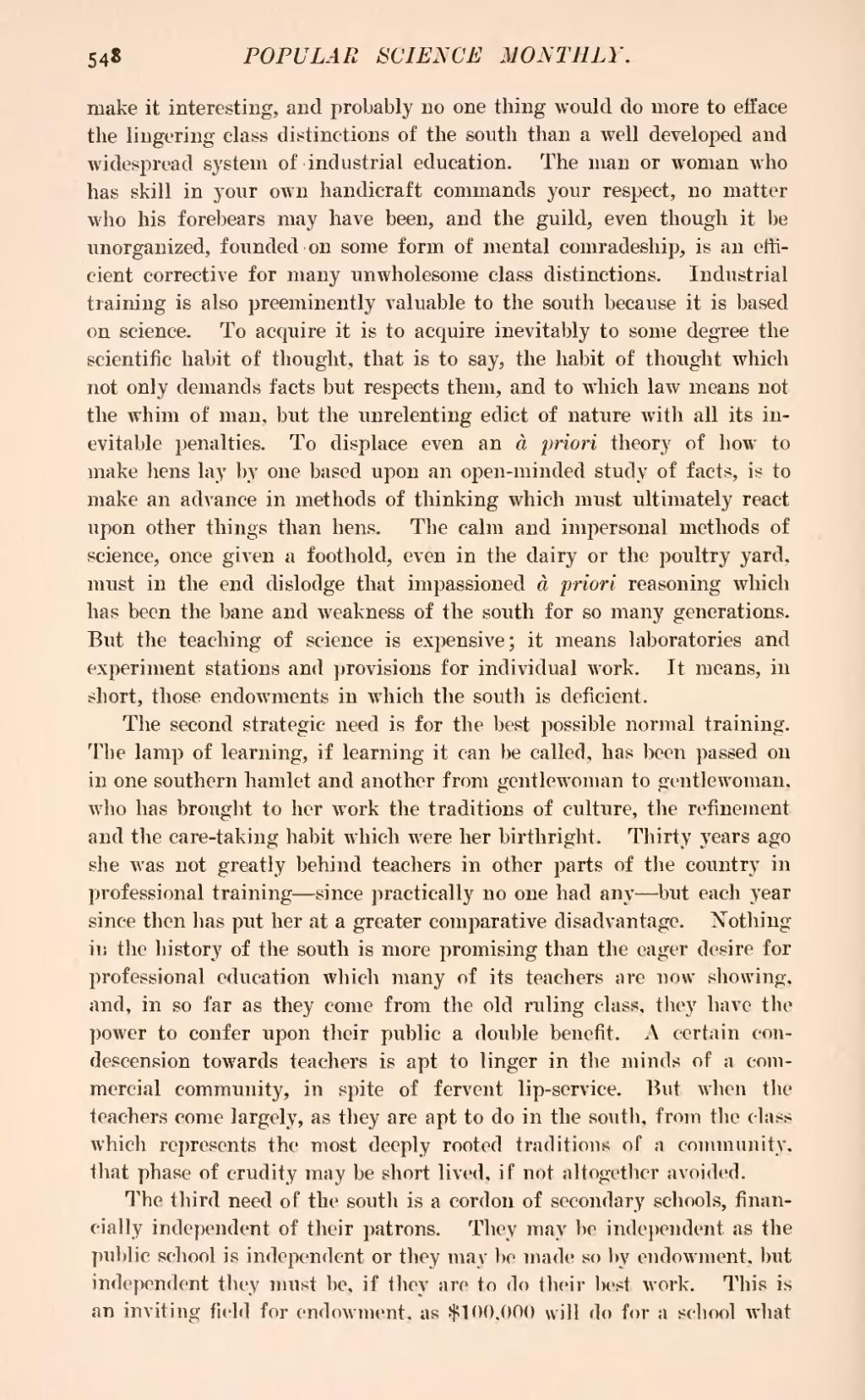make it interesting, and probably no one thing would do more to efface the lingering class distinctions of the south than a well developed and widespread system of industrial education. The man or woman who has skill in your own handicraft commands your respect, no matter who his forebears may have been, and the guild, even though it be unorganized, founded on some form of mental comradeship, is an efficient corrective for many unwholesome class distinctions. Industrial training is also preeminently valuable to the south because it is based on science. To acquire it is to acquire inevitably to some degree the scientific habit of thought, that is to say, the habit of thought which not only demands facts but respects them, and to which law means not the whim of man, but the unrelenting edict of nature with all its inevitable penalties. To displace even an à priori theory of how to make hens lay by one based upon an open-minded study of facts, is to make an advance in methods of thinking which must ultimately react upon other things than hens. The calm and impersonal methods of science, once given a foothold, even in the dairy or the poultry yard, must in the end dislodge that impassioned à 'priori reasoning which has been the bane and weakness of the south for so many generations. But the teaching of science is expensive; it means laboratories and experiment stations and provisions for individual work. It means, in short, those endowments in which the south is deficient.
The second strategic need is for the best possible normal training. The lamp of learning, if learning it can be called, has been passed on in one southern hamlet and another from gentlewoman to gentlewoman, who has brought to her work the traditions of culture, the refinement and the care-taking habit which were her birthright. Thirty years ago she was not greatly behind teachers in other parts of the country in professional training—since practically no one had any—but each year since then has put her at a greater comparative disadvantage. Nothing in the history of the south is more promising than the eager desire for professional education which many of its teachers are now showing, and, in so far as they come from the old ruling class, they have the power to confer upon their public a double benefit. A certain condescension towards teachers is apt to linger in the minds of a commercial community, in spite of fervent lip-service. But when the teachers come largely, as they are apt to do in the south, from the class which represents the most deeply rooted traditions of a community, that phase of crudity may be short lived, if not altogether avoided.
The third need of the south is a cordon of secondary schools, financially independent of their patrons. They may be independent as the public school is independent or they may be made so by endowment, but independent they must be, if they are to do their best work. This is an inviting field for endowment, as $100,000 will do for a school what

